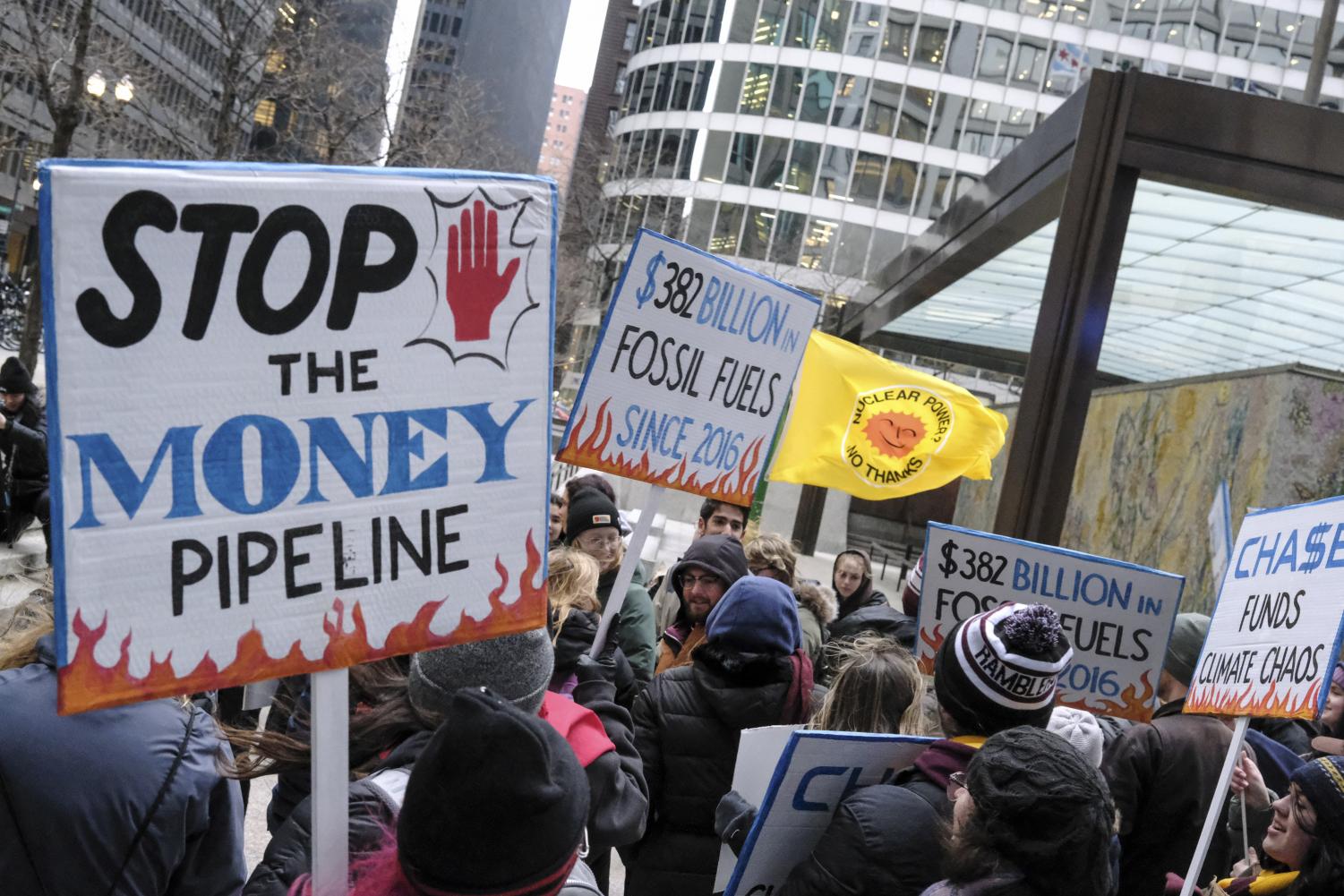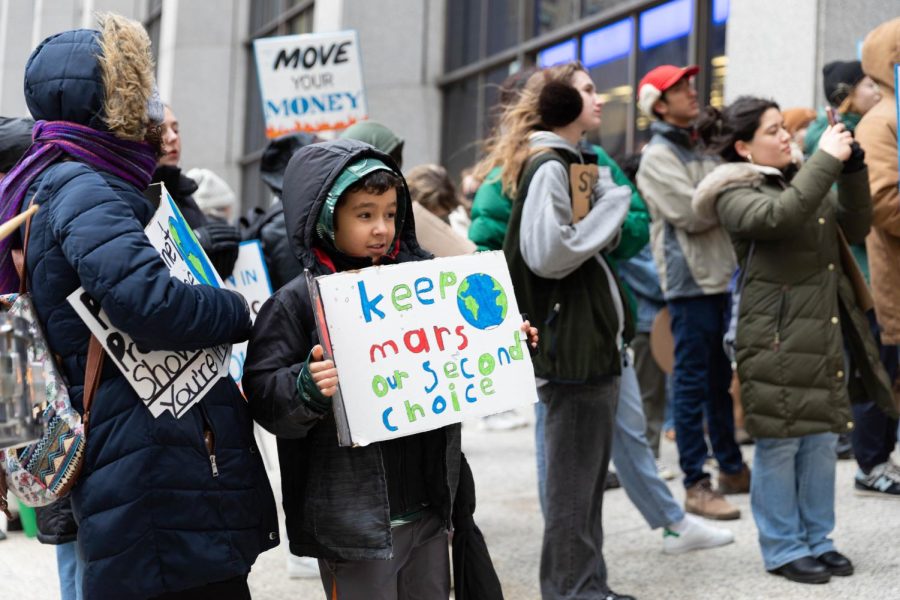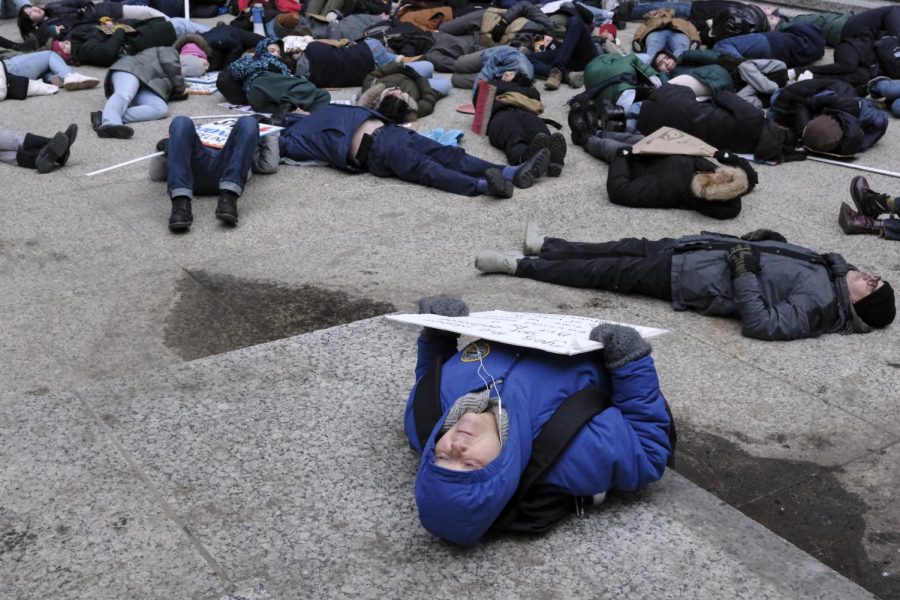Youth climate activists march against fossil fuel investments
March 3, 2023
Chants from hundreds of protestors calling for fossil fuel divestments filled the frigid air Friday afternoon in front of the Chase Tower in downtown Chicago.
Jose Dominguez, 11, an elementary school student from Schaumburg, stood among the crowd holding a sign that read “keep Mars our second choice.”
“I think it’s sad we have to look at Mars as a second planet when we could remain on our planet,” Dominguez said. “It’s our choice to remain on our planet or not for the remaining, who knows how long? And we’re throwing it away. I want to keep our planet, and Mars should stay our second choice.”
Dominguez said he skipped school today to attend the protest with his mom.
An ideal world, he said, would be “when people don’t use cars of gas, and places like Antarctica weren’t melting and we weren’t so worried about stuff.”
The event was organized by Fridays for Future, a global climate activist movement founded by Greta Thunberg in 2018. It included representatives from at least nine other organizations, including Chicago Climate Youth Coalition.
Natasha Bhatia, 17, a high school student from Hinsdale and leader of Fridays for Future Chicago, has now organized her second climate strike. She said the event this year targeted JPMorgan Chase Bank because it is one of the biggest fossil funders.
“We want to show them we want to get our message across, and we’re not going to stop,” Bhatia said.
Since 2016, JPMorgan Chase bank has invested over $382 billion in the fossil fuel industry. Its chief executive, Jamie Dimon, told Congress last year that the US needs to invest in the fossil-fuel industry to reduce greenhouse-gas emissions in the long term.
Beginning at Heritage Green Park, an urban green space in the Near West community, the marchers then stopped at the BP Headquarters, the headquarters of BP’s North American fuels business. Participants performed a die-in at Chase Tower, where they lay prone as if dead to symbolize what will happen to them if companies do not cease fossil fuel financing.
The march ended at Federal Plaza on South Dearborn Street, where climate activists spoke about a ConocoPhillips drilling plan that proposes introducing a massive oil drilling operation off Alaska’s North Slope.
In a few days, the Biden administration will make a decision on whether or not to advance the project.
If approved, the project would “produce 629 million barrels of oil over the course of a 30-year life span and would release between 278 million and 284 million metric tons of planet-warming carbon dioxide,” according to the US Department of the Interior.
Wearing a nuclear power plant jumpsuit costume, Stephanie Bilenko, 76, of LaGrange Park, said she supports eliminating fossil fuels and nuclear power as an energy source.
“Along with fossil fuel and fracking, and all the dirty coal stuff, we believe that nuclear power is not the way to generate more energy. It’s too costly, it’s dangerous and it takes a long time to build,” said Bilenko, a board member of the Nuclear Energy Information Service, a non-profit organization that advocates for sustainable alternatives to nuclear power.
Bilenko started protesting for climate justice because of the war in Iraq.
“The military is the largest consumer of fossil fuels, so they contribute most to the deterioration of this planet and the climate,” Bilenko said.


